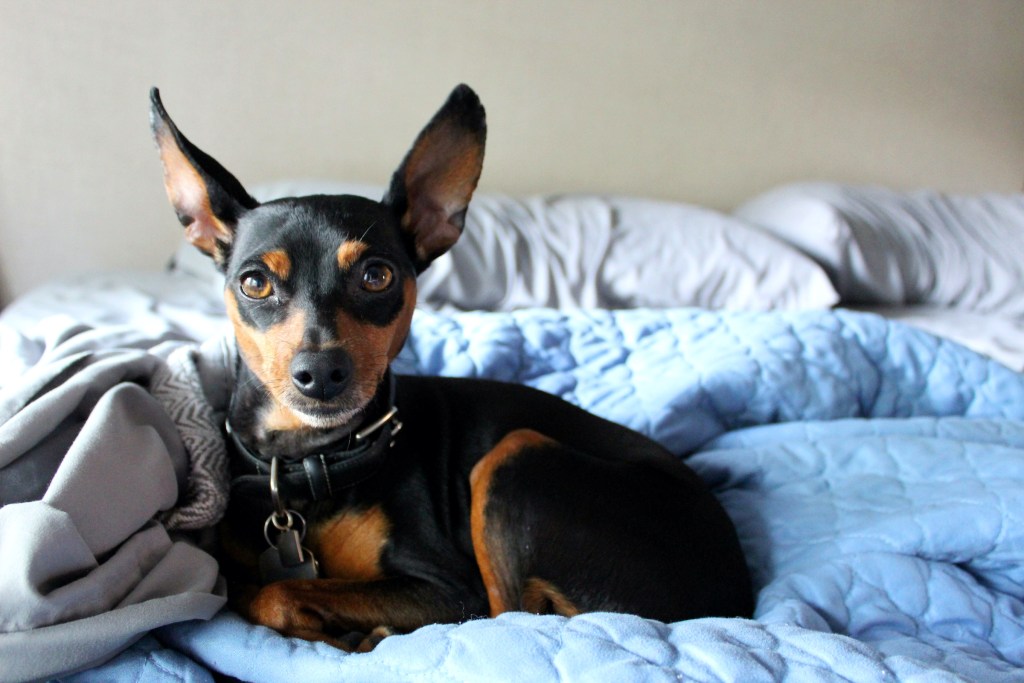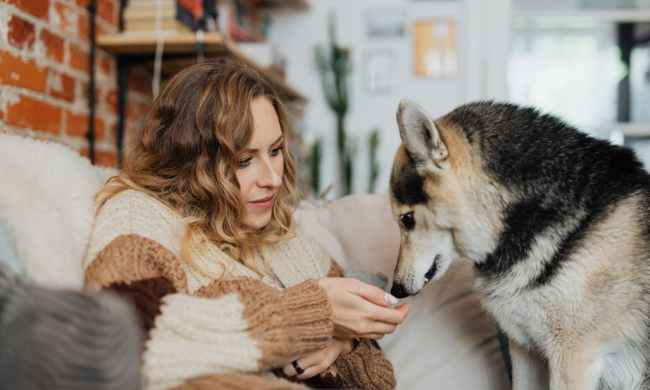Tiny dog breeds like Chihuahuas and Yorkies are known for many things: yapping and barking, BDE (big dog energy), and shaking — frequent, whole-body shaking. If this behavior isn’t something you’ve seen before it can seem a bit worrying. Why do little dogs shake so much? Is it a sign of something concerning?
Though most answers have been speculative until recently, canine behavior studies have come a long way in uncovering the real reasons why tiny dogs are known to tremble. Of course, no two pups are identical, so you shouldn’t be bothered if your fur baby doesn’t experience shaking in the same way.
Here’s what you need to know.

Why do little dogs shake?
Just like with any behavior, there are many causes that could be behind it. Your pup may reveal which it is — you just need to keep an eye on how they’re acting. For example, a dog who is cold might try to burrow in a blanket, while one who feels anxious may run and hide.
Cold
A good amount of the time, your small dog is shaking for the exact reason you might expect: they’re cold. Little dogs have less body fat to keep them warm — especially teacup breeds. These pups can weigh as little as 2-4 pounds, notes Wag!, which leaves them more susceptible to catching a chill. Puppies and senior dogs experience the same thing, so make sure to take extra precautions if your pet is of age.
You shake too when you’re chilly, don’t you? It’s usually not a sign of concern if you spot your pup trembling, but it’s also a good idea to help your little dog warm up. This is just one reason why owners invest in warm, cozy sweaters for dogs — they really do make a difference! Plus, how cute would your fur baby look in a little coat?
Anxiety or fear
Sometimes, intense emotions can show up in the body no matter what species you are. For tiny dogs, this often manifests as trembling throughout the whole body, according to Rocklin Ranch Vet. Hill’s Pet makes a great point that, while the shaking itself isn’t harmful to your pup, stress can have both short- and long-term negative effects.
Technically dogs of any size can experience tremors and shaking while anxious, although it may be more noticeable in smaller pets. In cases like this, it’s important to determine the cause of your dog’s stress so you can comfort them in the most helpful way. At the moment, calm voices and long, slow strokes while petting can work wonders.
Excitement
Negative emotions aren’t the only ones that can result in shaking. Excitement, especially at more extreme levels, can become a lot more than tail wagging. This isn’t harmful, explains Hill’s Pet, but can be reigned in by rewarding relaxed behavior and calmly ignoring the trembling.

Why is my dog shaking so much?
Of course, there are lots of reasons why a dog could be shaking, many that are unrelated to size. They range from medical conditions to emotional reactions, most of which you’ll likely be able to identify after spending some time with your pet.
Generalized Tremor Syndrome
In rare cases, a dog may frequently shake because of Generalized Tremor Syndrome (GTS) — a name for a number of conditions that cause, well, tremors. Your veterinarian will be able to give your dog a thorough examination and diagnosis so you will know exactly how to help.
Rocklin Ranch Vet explains that some breeds are more likely than others to be diagnosed with GTS, including, but not limited to, Chihuahuas and miniature pinschers. That being said, any small dog can suffer from this syndrome, so make sure to visit your vet if you notice frequent shaking.
Arthritis and joint disease
Sometimes, a dog can shake due to unsteady and uncomfortable joints in its legs and body. Canine arthritis and chronic joint disease are just two culprits that can leave pups feeling stiff, though it can be hard to tell whether trembling is from pain or unsteadiness, according to Rocklin Ranch Vet. Either way, it’s a good idea to consult your vet to determine the optimum plan of care for your best friend. These conditions can be totally manageable with just a little work on your end.
Final thoughts on shaking
Of course, there are other reasons why a dog may be shaking, but small dog trembling tends to be due to one of these causes. Most aren’t anything to worry about, but no vet will blame you for feeling concerned nonetheless. Shaking isn’t something humans tend to do 24 hours of the day, after all. We get it!



